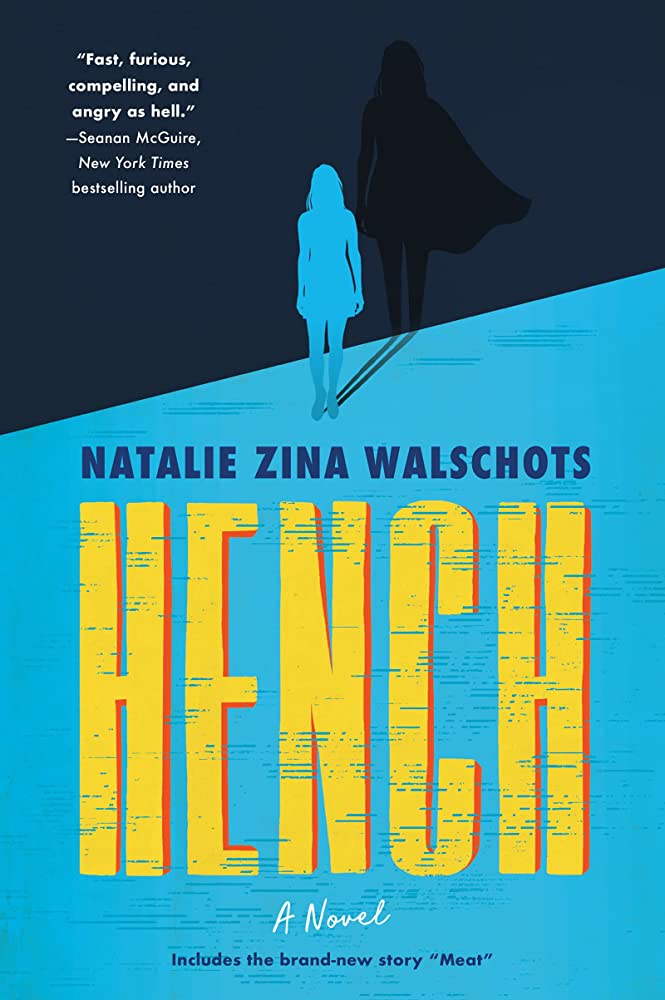Rating: ⭐⭐⭐⭐⭐
The book in one sentence: A freelancer pays her bills doing short gigs as a hench for villains, until she gets the Job of Her Dreams under the best boss you can’t even imagine.
Read if: You’re a fan of The Boys. Trust me.
Book length: 403 pages.
Initial impressions
One of my greatest crimes to date is leaving Hench unread on my shelf for several weeks before really diving into it. It’s a high-octane read: funny, witty, bitter, angry, punchy, and certainly has bite. Our protagonist lives in a hero’s world—and she and everybody else just lives in it. Nobody is what they appear to be in this story. I know a book is well-plotted when two things happen: first, I forget that I am reading; second, the whole thing plays out as a movie in my head. Hench ticks both boxes. If you want action, a feisty, flawed main character who’s gone through the hells of being in the working class, this book is for you.
By no means were the first few pages absolutely gripping; but what they were was interesting. Walschots does well throughout the entire novel. Things just get gradually and gradually more interesting at just the right pace. She doesn’t waste time trying to make you feel sorry for the protagonist. She uses every page to get you in on the action.
Character commentary
The protagonist is every young working professional who’s been chewed and spit out by the corporate world and working life. After a debilitating setback, she finds renewed vigor in uncovering a skill set she didn’t know she had. And she doesn’t do it by traveling to another country and visiting temples, or volunteering for noble causes. No. Like the rest of us, she uncovers a skill set through an unhealthy obsession. And like the best of us, she finds a way to capitalize on it. It’s one of her most memorable dimensions as a character. Our protagonist is a survivor. And that’s what we all are…or are trying to be, anyway.
The cast of side characters is diverse—literally. Walschots uses inclusive language, which is something I personally don’t see often enough across contemporary literature. Everybody is memorable, has their own baggage, and has their own reasons for living. In some novels, side characters exist to prop up the protagonist. But in Hench, the other characters exist to deepen the outlines of our protagonist, demonstrating all the ways she contrasts (and even attempts to bridge some of those contrasts). Several characters also have great arcs. Hench doesn’t spotlight just any one person, even with a protagonist; and this reflects one of the story’s themes: nobody succeeds on their own. Not even heroes.
Plot thoughts
In Hench, there are no fairytale endings or beginnings. It’s just everybody trying to get by and make it work as best as they can. And somehow that’s so satisfying. The feisty nature, or bite, that Hench has sprinkled throughout it is its sense of reality. No delusional main characters here (well, save one, and I won’t spoil that for you). After all, what is fiction but a slight (usually preferable) version of real life?

